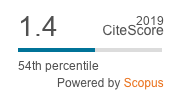Interdisciplinary robotics project for first-year engineering degree students
Abstract
The acquisition of both transversal and specific competences cannot be achieved using conventional methodologies. New methodologies must be applied that promote the necessary competences for proper professional development. Interdisciplinary projects can be a suitable tool for competence-based learning. A priori, this might be complicated, as subjects are traditionally studied at the university level in isolated compartments, with a fragmented structure. Taking advantage of the creation of new degree programs in Mechanical Engineering and Electronic Engineering and Industrial Automation, in the 2010-11 academic year we decided to add an interdisciplinary project (IP) to our teaching methodology. The importance of this project lies in the fact that it requires the participation of all the courses in all the academic years in the degree program. The present article explains the methodology used in the interdisciplinary project and how it was implemented in the first year of the Mechanical Engineering and Electronic Engineering and Industrial Automation degree programs. Furthermore, an evaluation is conducted of all four years of the interdisciplinary project, revealing the main problems with its execution and how they have been addressed.
Keywords
Full Text:
PDFDOI: https://doi.org/10.3926/jotse.152
This work is licensed under a Creative Commons Attribution 4.0 International License
Journal of Technology and Science Education, 2011-2024
Online ISSN: 2013-6374; Print ISSN: 2014-5349; DL: B-2000-2012
Publisher: OmniaScience







